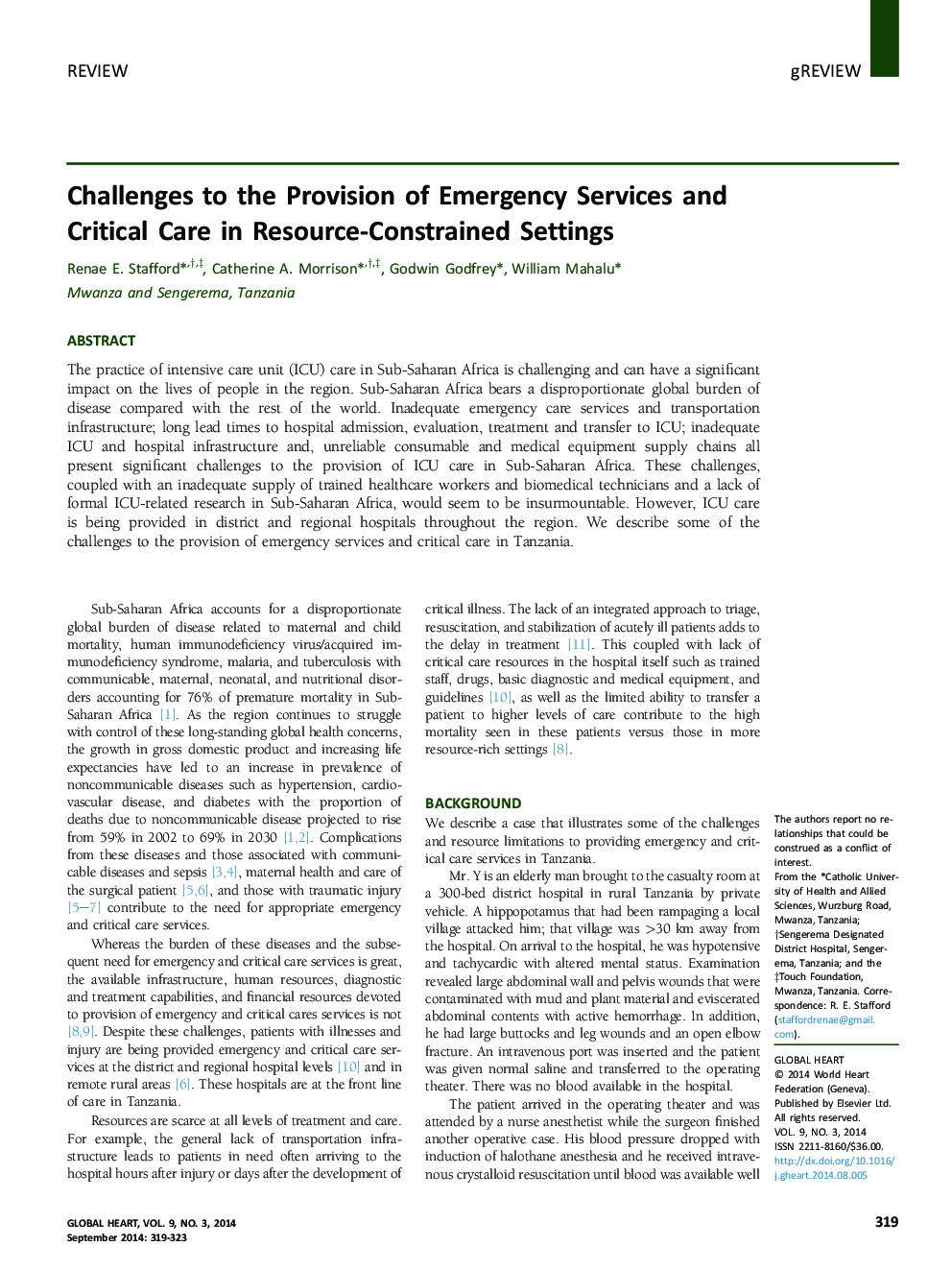| Article ID | Journal | Published Year | Pages | File Type |
|---|---|---|---|---|
| 2916436 | Global Heart | 2014 | 5 Pages |
•The burden of noncommunicable disease in Sub-Saharan Africa requires critical care.•Infrastructure, human resource, and healthcare commodities challenges are present.•Access to emergency and critical care services has an impact and is cost-effective.•Trained, available healthcare workers in adequate numbers are critical.
The practice of intensive care unit (ICU) care in Sub-Saharan Africa is challenging and can have a significant impact on the lives of people in the region. Sub-Saharan Africa bears a disproportionate global burden of disease compared with the rest of the world. Inadequate emergency care services and transportation infrastructure; long lead times to hospital admission, evaluation, treatment and transfer to ICU; inadequate ICU and hospital infrastructure and, unreliable consumable and medical equipment supply chains all present significant challenges to the provision of ICU care in Sub-Saharan Africa. These challenges, coupled with an inadequate supply of trained healthcare workers and biomedical technicians and a lack of formal ICU-related research in Sub-Saharan Africa, would seem to be insurmountable. However, ICU care is being provided in district and regional hospitals throughout the region. We describe some of the challenges to the provision of emergency services and critical care in Tanzania.
